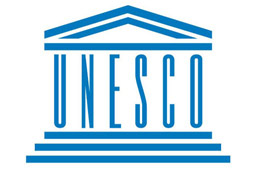The Futures of Education
 Last year I evaluated the ICT in education projects and programmes for UNESCO. In particular I looked at UNESCOs work in sub Saharan Africa. In a ‘Landscape Review’ of the use of ICT in education I wrote:
Last year I evaluated the ICT in education projects and programmes for UNESCO. In particular I looked at UNESCOs work in sub Saharan Africa. In a ‘Landscape Review’ of the use of ICT in education I wrote:
“UNESCO has a humanistic vision of education and of the role of ICT in education linked to its mission of providing inclusive and quality education that is transforming lives and at the heart of UNESCO’s mission to build peace, eradicate poverty and drive sustainable development.
UNESCO believes that education is a human right (so it cannot be a market good) for all throughout life and that access must be matched by quality. It has a mandate to cover all aspects and all levels of education and to lead and contribute to the Global Education 2030 Agenda through Sustainable Development Goal 4. UNESCO believes information and communication technology (ICT) can complement, enrich and transform education for the better. As the lead United Nations Organization for education, UNESCO shares knowledge about the many ways technology can facilitate universal access to education, bridge learning divides, support the development of teachers, enhance the quality and relevance of learning, strengthen inclusion, and improve education administration and governance.”
I am very pleased to see UNECO is opening up a global discussion on the futures of education.
UNESCO is now inviting organisations and networks to mobilize their stakeholders and partners to engage in the global debate on the futures of education and provide inputs to the International Commission on the Futures of Education.
They have prepared guidelines for running stakeholder focus groups so that a broad range of unique perspectives can be brought into the global discussion. The insights gained through focus group discussions, they say, will be synthesized by UNESCO and presented to the International Commission as an input into the development of a global report on the futures of education.
UNESCO is also inviting its partners and organizations broadly interested in the futures of education to organize seminars or work groups that result in a written report for the UNESCO International Commission on the Futures of Education. Input is sought on identifying and addressing key challenges and opportunities foreseen for the future.
More informati0n at https://en.unesco.org/futuresofeducation/how-contribute
